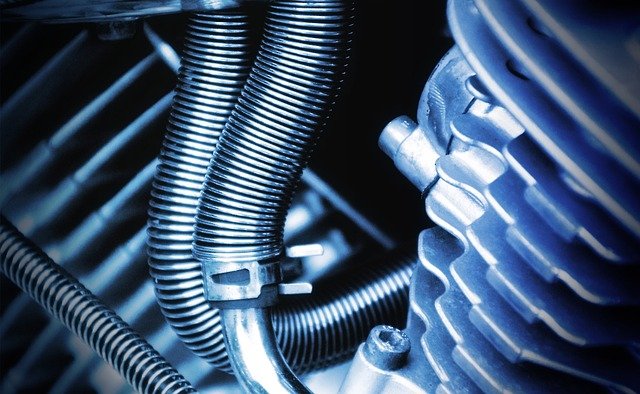Buyer’s Guide to Choosing a Reliable Remanufactured Engine
Remanufactured engines undergo detailed inspections and component replacement to restore function. Learning about quality standards, warranties, and testing procedures helps buyers understand what contributes to long-term reliability when considering replacement options.

When your vehicle’s engine reaches the end of its operational life, purchasing a remanufactured engine presents a cost-effective alternative to buying new. Remanufactured engines undergo extensive rebuilding processes that restore them to like-new specifications, often providing performance comparable to original equipment while offering significant savings.
The remanufacturing industry has evolved considerably, with advanced technologies and standardized procedures ensuring consistent quality across different providers. Understanding what distinguishes a reliable remanufactured engine from substandard alternatives can save thousands of dollars and prevent future mechanical problems.
Quality Checks and Inspections
Reputable remanufacturing facilities implement comprehensive inspection protocols that exceed original manufacturing standards. The process begins with complete engine disassembly, where every component undergoes individual evaluation using precision measuring equipment and visual inspection techniques.
Critical components like cylinder heads, engine blocks, and crankshafts receive particular attention during quality assessments. Cylinder heads are tested for cracks using magnetic particle inspection or pressure testing methods. Engine blocks undergo bore measurements to ensure proper cylinder dimensions, while crankshafts are checked for straightness and journal wear patterns.
Modern remanufacturing facilities utilize computerized testing equipment that can detect microscopic flaws invisible to traditional inspection methods. These advanced quality control measures help identify potential failure points before the engine reaches the customer, significantly reducing the likelihood of premature failure.
Warranty and Support Insights
Warranty coverage serves as a primary indicator of manufacturer confidence in their remanufacturing processes. Standard warranty periods typically range from 12 months to 36 months, with mileage limitations between 12,000 and 100,000 miles depending on the provider and engine type.
Comprehensive warranty programs should cover both parts and labor costs associated with engine failure due to manufacturing defects. Some providers offer nationwide warranty coverage through authorized service centers, while others require returns to specific facilities for warranty work.
Customer support infrastructure varies significantly among remanufacturing companies. Established providers maintain technical support hotlines staffed by experienced technicians who can assist with installation questions and troubleshooting procedures. Documentation quality also differs, with better companies providing detailed installation instructions and torque specifications.
Key Factors in Engine Selection
Engine compatibility represents the most fundamental consideration when selecting a remanufactured unit. Beyond basic fitment requirements, buyers must verify that the replacement engine matches their vehicle’s specific year, make, model, and emissions requirements. California and other states with strict emissions standards may require engines certified for specific emission control systems.
Mileage expectations should align with the engine’s intended application. High-performance applications or commercial use may require engines built to more demanding specifications than standard passenger vehicle applications. Some remanufacturers offer different performance levels, from basic rebuilds to enhanced specifications with upgraded components.
Source reputation plays a crucial role in long-term satisfaction. Established remanufacturing companies typically maintain better quality control standards and offer more comprehensive support services than smaller operations. Researching company history, customer reviews, and industry certifications can help identify reliable suppliers.
| Provider | Engine Types | Warranty Period | Cost Range |
|---|---|---|---|
| Jasper Engines | Automotive, Marine, Industrial | 36 months/100,000 miles | $3,500 - $8,500 |
| Fraser Engines | Automotive, Light Truck | 24 months/50,000 miles | $2,800 - $6,200 |
| Powertrain Products | Automotive, Heavy Duty | 12-36 months/Unlimited miles | $3,200 - $7,800 |
| ATK Engines | High Performance, Standard | 24 months/50,000 miles | $3,000 - $9,500 |
Prices, rates, or cost estimates mentioned in this article are based on the latest available information but may change over time. Independent research is advised before making financial decisions.
Installation considerations affect both immediate costs and long-term reliability. Professional installation by experienced technicians familiar with the specific engine type typically yields better results than general automotive repair shops. Some remanufacturers maintain networks of certified installers who receive specialized training on their products.
Break-in procedures significantly impact engine longevity and performance. Most remanufactured engines require specific break-in protocols involving gradual load increases and frequent oil changes during the initial operating period. Following manufacturer recommendations during this critical phase helps ensure optimal ring seating and component wear patterns.
Selecting a reliable remanufactured engine involves balancing cost considerations with quality expectations and support requirements. Thorough research into provider reputation, warranty terms, and quality control processes helps ensure a successful engine replacement experience that provides years of dependable service.




